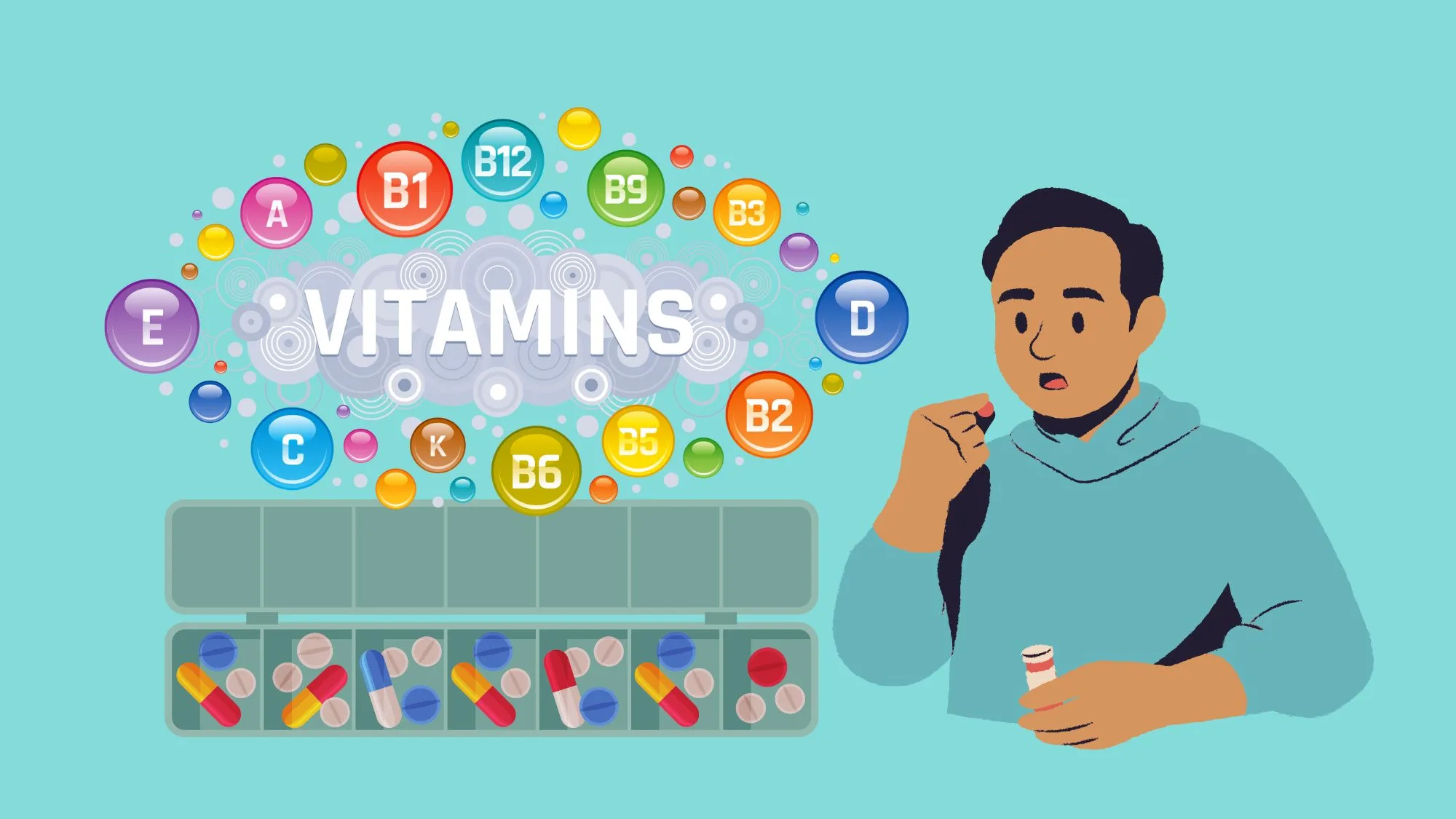
As men enter their 40s, their nutritional needs begin to change. It becomes increasingly important to ensure that the body receives an adequate supply of essential vitamins and minerals to support overall health and well-being. One effective way to bridge nutritional gaps is by incorporating a high-quality multivitamin into the daily routine. But with so many options available on the market, how can men over 40 choose the best multivitamin for their specific needs?
Understanding the Nutritional Needs of Men Over 40
Before delving into the world of multivitamins, it is crucial to understand the unique nutritional requirements of men in their 40s. This age range is often characterized by a gradual decrease in muscle mass, bone density, and metabolism. Additionally, men over 40 may also face specific health concerns, such as heart health and prostate issues. All these factors contribute to the importance of selecting the right multivitamin tailored to the needs of this age group.
As men enter their 40s, they may notice changes in their body composition. The once easily maintained muscle mass starts to decline, making it important to focus on maintaining muscle strength and preventing muscle loss. This can be achieved through a combination of regular exercise and a balanced diet.
Furthermore, bone health becomes a significant concern for men in their 40s. With age, bone density naturally decreases, increasing the risk of osteoporosis and fractures. Calcium, a vital mineral for bone health, becomes even more crucial at this stage of life. Ensuring an adequate intake of calcium-rich foods, such as dairy products, leafy greens, and fortified foods, can help maintain strong and healthy bones.
The Role of Vitamins in Men’s Health
Vitamins are essential for supporting various bodily functions and maintaining optimal health. For men over 40, certain vitamins play a crucial role in promoting overall well-being. Vitamin D, for example, is essential for bone health and immune system function. It aids in the absorption of calcium, ensuring that the body can utilize this important mineral effectively.
In addition to its role in bone health, vitamin D has also been linked to a reduced risk of chronic diseases, including heart disease and certain types of cancer. Spending time outdoors in the sunlight, consuming fatty fish, and fortified dairy products are all ways to increase vitamin D intake naturally.
Similarly, vitamin B12 is vital for energy metabolism and the health of the nervous system. As men age, their metabolism tends to slow down, making it important to ensure an adequate intake of this essential vitamin. Vitamin B12 can be found in animal products such as meat, fish, eggs, and dairy, making it important for men over 40 to include these foods in their diet.
Specific Nutritional Requirements for Men Over 40
In addition to vitamins, men over 40 may also require specific nutrients to address age-related concerns. One such nutrient is calcium, which helps maintain bone health and reduces the risk of osteoporosis. It is important to note that calcium absorption decreases with age, making it necessary to increase intake to meet the body’s needs.
Another important mineral is selenium, known for its antioxidant properties and beneficial effects on prostate health. Selenium-rich foods include Brazil nuts, seafood, meat, and grains. By incorporating these foods into their diet or choosing a multivitamin that includes selenium, men can optimize their nutritional intake and support their overall well-being.
Furthermore, omega-3 fatty acids, commonly found in fatty fish like salmon and mackerel, play a crucial role in heart health. As men age, the risk of heart disease increases, making it important to include omega-3 fatty acids in their diet. These healthy fats have been shown to reduce inflammation, lower blood pressure, and improve overall heart function.
Lastly, maintaining a healthy weight becomes increasingly important for men over 40. As metabolism slows down, it becomes easier to gain weight and harder to lose it. Incorporating a variety of fruits, vegetables, whole grains, lean proteins, and healthy fats into the diet can help men maintain a healthy weight and reduce the risk of chronic diseases.
Understanding the nutritional needs of men over 40 is crucial for maintaining optimal health and well-being. By focusing on a balanced diet, incorporating specific vitamins and nutrients, and considering the use of multivitamins tailored to their needs, men can proactively support their overall health and vitality as they age.
Key Ingredients to Look for in a Multivitamin
When it comes to selecting a multivitamin, it is crucial to pay close attention to the ingredients and their specific benefits. By choosing the right multivitamin, you can ensure that your body receives the necessary nutrients to thrive in your 40s and beyond.
Here are some key ingredients to consider when choosing the best multivitamin for men over 40:
Essential Vitamins for Men Over 40
- Vitamin A: This essential vitamin not only supports eye health but also plays a vital role in maintaining a healthy immune function. It helps your body fight off infections and keeps your immune system strong.
- Vitamin C: Acting as a powerful antioxidant, Vitamin C helps protect your body against harmful free radicals. Additionally, it plays a crucial role in maintaining healthy skin, promoting collagen production, and supporting wound healing.
- Vitamin E: Known for its antioxidant properties, Vitamin E helps protect your cells from damage caused by free radicals. It also supports heart health by preventing the oxidation of LDL cholesterol, reducing the risk of heart disease.
- Vitamin K: This vitamin is essential for promoting bone health and blood clotting. It helps your body absorb calcium, ensuring strong and healthy bones. Additionally, Vitamin K plays a role in blood clotting, preventing excessive bleeding.
By ensuring that your chosen multivitamin includes these essential vitamins, you can provide your body with the necessary nutrients to thrive in your 40s and beyond.
Beneficial Minerals and Supplements
- Calcium: As men age, maintaining strong bones becomes increasingly important. Calcium is crucial for bone health and reducing the risk of osteoporosis, a condition characterized by weak and brittle bones.
- Selenium: This mineral exhibits antioxidant properties, helping protect your cells from damage. It also plays a role in promoting prostate health, reducing the risk of prostate-related issues that can arise with age.
- Zinc: As a key mineral, zinc supports immune function and helps maintain healthy testosterone levels. It plays a role in cell division, wound healing, and DNA synthesis, ensuring optimal overall health.
- Magnesium: Often referred to as the “mighty mineral,” magnesium plays a crucial role in various bodily functions. It is involved in muscle function, nerve transmission, and maintaining a healthy heartbeat. Additionally, magnesium supports energy production and helps regulate blood pressure.
These minerals and supplements, when included in a multivitamin formulation, can further enhance the overall health benefits for men over 40. By incorporating these key ingredients into your daily routine, you can support your body’s needs and maintain optimal health as you age.
How to Choose the Right Multivitamin
Now that we’ve explored the nutritional needs of men over 40 and the key ingredients to look for in a multivitamin, let’s dive into the process of selecting the right multivitamin:
Considering Your Lifestyle and Dietary Needs
One essential aspect to consider is your specific lifestyle and dietary patterns. If you follow a specialized diet or have certain dietary restrictions, it is crucial to choose a multivitamin that complements your nutritional choices.
Opt for a plant-based multivitamin rich in iron, B12, and omega-3s if you’re on a vegetarian or vegan diet. Ensure it’s allergen-free for those with food sensitivities.
Tailor your choice based on physical activity. Active individuals benefit from multivitamins with antioxidants and electrolytes for muscle recovery and enhanced performance.
Address heart health with CoQ10 or support joints with glucosamine by choosing multivitamins tailored to your specific health concerns.
Evaluating Quality and Brand Reputation
When it comes to multivitamins, quality matters. Look for brands that undergo rigorous testing and adhere to strict manufacturing standards.
One way to ensure quality is to look for multivitamins that are third-party tested. This means that an independent organization has verified the accuracy of the ingredients listed on the label and confirmed that the product is free from contaminants.
Reading customer reviews can also provide valuable insights into the effectiveness and reliability of a particular brand. Look for reviews from verified purchasers who have similar health concerns or dietary needs as you.
One such brand that stands out in the market is CareClinic. They offer a comprehensive multivitamin that is specifically formulated for men over 40, providing the right balance of essential vitamins and minerals to support overall health and well-being.
CareClinic’s multivitamin undergoes rigorous testing to ensure quality and is manufactured in a facility that follows Good Manufacturing Practices (GMP). Their product has received positive reviews from customers who have experienced improved energy levels, better immune function, and overall well-being.
Choosing the right multivitamin is an important decision that can have a significant impact on your health and well-being. By considering your lifestyle, dietary needs, and evaluating the quality and brand reputation, you can make an informed choice that supports your unique nutritional requirements.
Potential Health Benefits of Multivitamins
Multivitamins can offer a range of health benefits for men over 40. Let’s explore some potential advantages:
Boosting Immune System Function
A well-functioning immune system is vital for maintaining good health. The right blend of vitamins and minerals in a multivitamin can help strengthen the immune response, reducing the risk of illnesses and infections. CareClinic’s multivitamin, for example, includes vitamin C and zinc, which are known for their immune-boosting properties.
When it comes to immune health, vitamin C is a superstar. It is a powerful antioxidant that helps protect cells from damage and supports the production of white blood cells, which are essential for fighting off infections. Zinc, on the other hand, plays a crucial role in the development and function of immune cells. It helps regulate immune responses and enhances the activity of certain immune cells, such as natural killer cells and T-cells.
By including vitamin C and zinc in its formulation, CareClinic’s multivitamin provides the necessary support to keep your immune system strong and resilient. With a fortified immune system, you can better ward off common colds, flu, and other infections that may compromise your overall health.
Supporting Heart and Prostate Health
Heart health and prostate health are two key concerns for men over 40. Multivitamins that contain heart-healthy nutrients like vitamin E and omega-3 fatty acids can support cardiovascular function. Additionally, nutrients like selenium and zinc play a crucial role in maintaining prostate health. CareClinic’s multivitamin includes these beneficial ingredients, making it an ideal choice for men looking to support both their heart and prostate health.
Vitamin E is a potent antioxidant that helps protect the cells in your body from damage caused by free radicals. It also plays a role in preventing the oxidation of LDL cholesterol, which is a major risk factor for heart disease. Omega-3 fatty acids, commonly found in fish oil, have been shown to reduce inflammation, lower triglyceride levels, and improve overall heart health.
When it comes to prostate health, selenium and zinc are essential minerals. Selenium acts as an antioxidant and helps protect prostate cells from damage. It also plays a role in regulating the growth and function of prostate cells. Zinc, on the other hand, is involved in prostate tissue development and function. It helps maintain proper hormone levels and supports the overall health of the prostate gland.
By including vitamin E, omega-3 fatty acids, selenium, and zinc in its formulation, CareClinic’s multivitamin provides comprehensive support for both heart and prostate health. Taking this multivitamin regularly can help reduce the risk of cardiovascular diseases and support optimal prostate function.
Top 3 Best Multivitamins for Men Over 40
- Centrum Men MultiGummies. Centrum MultiGummies for Men are assorted fruit-flavored gummy multivitamins packed with essential nutrients. Formulated to support energy, immunity, metabolism, and muscle function, they contain more vitamin D than other gummies. Specially crafted with selenium, zinc, vitamins B and D, and antioxidant vitamins C and E, these easy-to-take gummies have no artificial flavors or sweeteners.
- One A Day Men’s Multivitamin Gummies. One A Day Men’s Multivitamin Gummies are a tasty solution to supplement vitamins and minerals your diet may lack. Uniquely designed for men, these gummies support bone, immune, skin, and eye health, along with energy metabolism. Packed with 14 active ingredients, each fruit-flavored gummy contains essential vitamins A/C/D/E, biotin, selenium, folic acid, zinc, and more. Formulated with quality ingredients, these vitamin gummies are free of aspartame and high fructose corn syrup. With over 75 years of expertise in nutritional science, One A Day is a trusted brand providing tailored multivitamins for different life stages.
One A Day Men Multivitamin Gummies
- OLLY Men’s Multi Gummy Supplement. These Men’s Multi gummies contain essential nutrients for men’s health, including Zinc, Lycopene, and vitamins A, C, D, E, and B2, B6, and B12. Simply chew two gummies daily without the need for food or water. If taking antibiotics, ensure a 2-3 hour gap. The Blackberry Blitz flavor is naturally tasty with no artificial colors or flavors, and they are gluten-free. Mix and match OLLY gummies and vitamins as you please, following label instructions. OLLY products are not only delicious but also effective, offering multivitamin gummies, premium softgels, and more for a happy inside-out feeling.
OLLY Men Multi Gummy Supplement
Common Misconceptions About Multivitamins
Despite the numerous benefits of multivitamins, there are certain misconceptions that need to be addressed:
Debunking Multivitamin Myths
One common myth surrounding multivitamins is that they can compensate for an unhealthy diet. While multivitamins can certainly help fill in nutritional gaps, they should never be considered a substitute for a well-balanced diet rich in fruits, vegetables, whole grains, and lean proteins. Multivitamins are meant to complement a healthy lifestyle, not replace it.
Understanding the Limitations of Multivitamins
Another misconception is that multivitamins can miraculously prevent or cure diseases. While they can support overall health and well-being, it is important to remember that multivitamins are not a cure-all solution. Regular exercise, a balanced diet, and routine medical check-ups are still essential for maintaining optimal health.
Choosing the best multivitamin for men over 40 involves understanding their specific nutritional needs, evaluating key ingredients, considering lifestyle factors, and ensuring a reputable brand. By incorporating a high-quality multivitamin like the one offered by CareClinic into their daily routine, men over 40 can take proactive steps towards optimizing their health and vitality. Remember, self-care starts with making informed choices and investing in products that prioritize your well-being.
Take control of your health journey with the CareClinic App, your personal health assistant designed to manage and track your nutritional intake, supplement regimen, and overall well-being. As you focus on selecting the best multivitamin for men over 40, the CareClinic App becomes an invaluable tool, allowing you to monitor your daily vitamin consumption, set reminders for consistent supplementation, and track the impact on your health goals.
Use the CareClinic App to Document Changes in Your Body
With features like the health diary, you can document changes in your body composition, muscle strength, and bone health, directly correlating your multivitamin use with improvements in these areas. CareClinic’s comprehensive analytics provide insights into your progress, helping you make informed decisions about your health. By using the CareClinic App, you can ensure that your efforts towards maintaining a balanced diet and a healthy lifestyle are accurately tracked and contribute to enhanced health outcomes. Ready to optimize your health as you age? Install the CareClinic App today and experience the benefits of a tailored approach to your nutritional needs.





